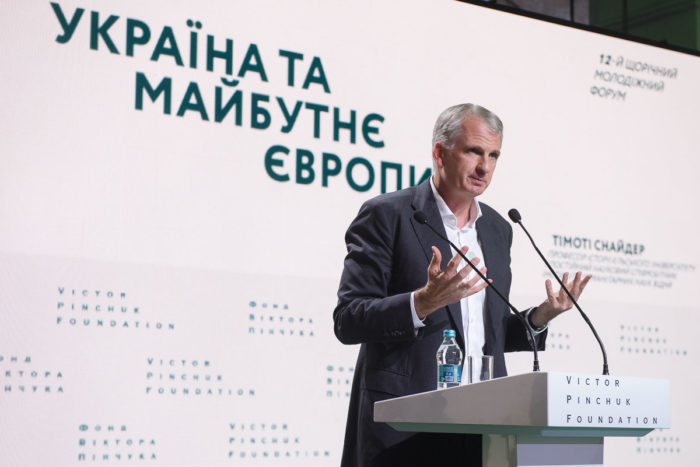

 As it turned out, the news was infused through Twitter.
As it turned out, the news was infused through Twitter.
 The original Twitter source of this news was the Voice of Donetsk which twitted it on October 8, 2014
The original Twitter source of this news was the Voice of Donetsk which twitted it on October 8, 2014
 with reference to VeraVera (+18) @VeraVolf
with reference to VeraVera (+18) @VeraVolf
 What a reliable source! Of course no such news was ever reported by RIA Novosti which was cited by both Ukrainian agencies. Anticor.com.ua also made reference, without providing the link to the source, to the “site of [the Ukrainian oligarch Ihor] Kolomoiskiy.” To increase credibility of the piece Ukrainian news agencies even cited commentary of Russian ‘witnesses’ confirming the invasion:
What a reliable source! Of course no such news was ever reported by RIA Novosti which was cited by both Ukrainian agencies. Anticor.com.ua also made reference, without providing the link to the source, to the “site of [the Ukrainian oligarch Ihor] Kolomoiskiy.” To increase credibility of the piece Ukrainian news agencies even cited commentary of Russian ‘witnesses’ confirming the invasion:
 On September 12, Russian online news portal Lenta.ru did post a report were it merely stated that the Russian military was holding military drills near the Chinese border in response to the Chinese drills.
This provocation was meant to demonstrate that the Ukrainian media is just as prone to as its Russian counterpart to use propaganda methods. Russians use such tricks on some Ukrainian media channels that reproduce the news without proper fact checking so that they lose trust and credibility of their readers. Breaking news is nothing but a message that people want to hear.
Censor.net has responded immediately and urgently removed this news. The fake could have achieved its goal: at least three Ukrainian Internet resources Censor.net, Anticor.com.ua, InfoResist and forums of Ukrainska Pravda were compromised and discredited. Russian information provokers suppose that there could be less trust to their information because of this provocation. Russian trolls did a great job for Putin.
One mocking and derogatory Russian post confirms that it was a planned Russian provocation in which, unfortunately, some Ukrainian media were caught.
On September 12, Russian online news portal Lenta.ru did post a report were it merely stated that the Russian military was holding military drills near the Chinese border in response to the Chinese drills.
This provocation was meant to demonstrate that the Ukrainian media is just as prone to as its Russian counterpart to use propaganda methods. Russians use such tricks on some Ukrainian media channels that reproduce the news without proper fact checking so that they lose trust and credibility of their readers. Breaking news is nothing but a message that people want to hear.
Censor.net has responded immediately and urgently removed this news. The fake could have achieved its goal: at least three Ukrainian Internet resources Censor.net, Anticor.com.ua, InfoResist and forums of Ukrainska Pravda were compromised and discredited. Russian information provokers suppose that there could be less trust to their information because of this provocation. Russian trolls did a great job for Putin.
One mocking and derogatory Russian post confirms that it was a planned Russian provocation in which, unfortunately, some Ukrainian media were caught.
 Internet posts, of course, can never be removed completely, they remain in the cache of Internet browsers and search engines.
Internet posts, of course, can never be removed completely, they remain in the cache of Internet browsers and search engines.
 It confirms again that information wars are conducted by trained Russian professionals. Uncoordinated and untrained Ukrainian volunteer news media with scarce or no funding become easy targets for Russia. Information war is a formidable front, but so far it seems it has not been taken seriously by the Ukrainian government. Ukraine already is losing the infowar abroad. For example, try to type “Ukraine deutsch” in a YouTube search. You will be much surprised with what you see (in German of course). Most of the materials are pro-Russian or in agreement with Russian point of view or filled with conspiracy theories that US would like to conquer Europe and Ukraine.
If such situations persist and appreciation of the severity of the infowar does not change in Ukraine the situation will be far worse. The funds directed at the Ukrainian electoral campaign are sometimes used by some Ukrainian politicians to throw dirt at each other and results in the deterioration of Ukraine’s image. Even if a fraction of the funds such as those spent today on the electoral campaign could be committed to the professional informational work against Russian informational warfare, the benefits for Ukraine would be great. There are some activities of the independent foundations directed to build up professional resources from uncoordinated volunteer groups in Ukraine, but they are far from sufficient. Perhaps in the near future this situation will change and more support for independent media and social networks activities will be forthcoming.
Written by Dr. Vitalii Usenko, MD, MBA, expert of the Center of Military-Political Studies in the sphere of psychology of communications and by Dmytro Usenko, student at Rotman School of Management, University of Toronto
It confirms again that information wars are conducted by trained Russian professionals. Uncoordinated and untrained Ukrainian volunteer news media with scarce or no funding become easy targets for Russia. Information war is a formidable front, but so far it seems it has not been taken seriously by the Ukrainian government. Ukraine already is losing the infowar abroad. For example, try to type “Ukraine deutsch” in a YouTube search. You will be much surprised with what you see (in German of course). Most of the materials are pro-Russian or in agreement with Russian point of view or filled with conspiracy theories that US would like to conquer Europe and Ukraine.
If such situations persist and appreciation of the severity of the infowar does not change in Ukraine the situation will be far worse. The funds directed at the Ukrainian electoral campaign are sometimes used by some Ukrainian politicians to throw dirt at each other and results in the deterioration of Ukraine’s image. Even if a fraction of the funds such as those spent today on the electoral campaign could be committed to the professional informational work against Russian informational warfare, the benefits for Ukraine would be great. There are some activities of the independent foundations directed to build up professional resources from uncoordinated volunteer groups in Ukraine, but they are far from sufficient. Perhaps in the near future this situation will change and more support for independent media and social networks activities will be forthcoming.
Written by Dr. Vitalii Usenko, MD, MBA, expert of the Center of Military-Political Studies in the sphere of psychology of communications and by Dmytro Usenko, student at Rotman School of Management, University of Toronto





